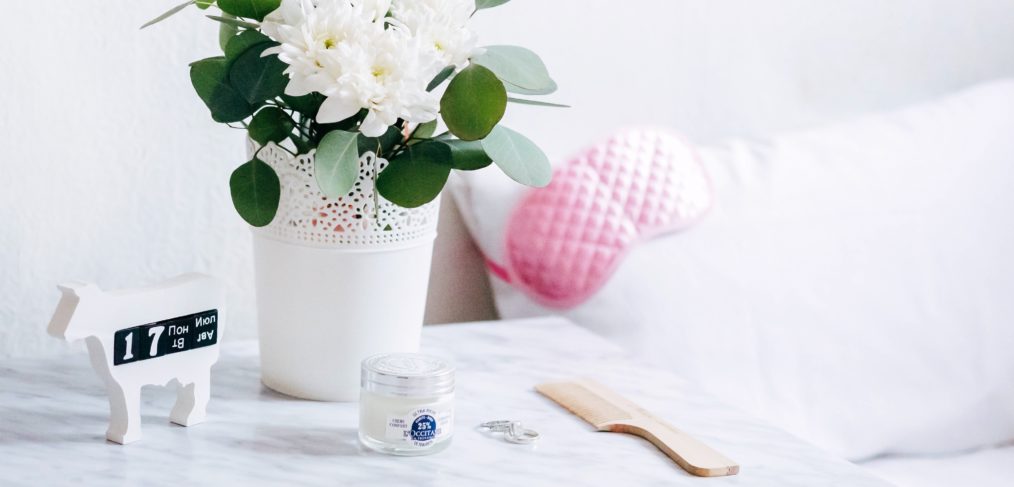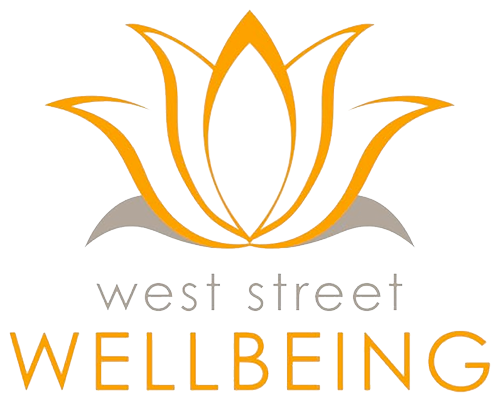
7 Steps to a Better Nights Sleep
By Chantelle van der Weyden
In my opinion sleep is the most underrated tool to thriving health, and is so often overlooked when it comes to establishing a healthy routine. We all know we need to eat well and exercise, but prioritising sleep can fall to the wayside especially given the busy and overstimulating lives many of us lead. In fact, sleep deprivation has been described as having become endemic in our modern 24/7 society1.
Sleep is essential for human functioning and a lack of sleep has been linked to many disease processes. Less than optimal sleep has been linked to increased appetite and weight gain2, insulin resistance and diabetes1, an imbalanced gut microbiome3, hormonal imbalance4, 5, 6 and fertility concerns7, 8, reduced immune function9 and the development of mental health disorders10. And on a more basic level we all know how crappy we feel after a late or restless night.
How much sleep do we actually need? The consensus seems to be between 7 and 9 and we usually need a little less in summer and a little more in winter. Sleep between the hours of 10pm and 2am seem to be the most restorative. But remember, every body is different. Take note of how you feel when you wake in the mornings, how productive you are, and how your mood is after varying amounts of sleep until you figure out your sweet spot.
I personally love sleep, and am very lucky in that I have always been a good sleeper. However, I suffer immensely if I don’t get enough sleep (I’m sure my partner can attest to this). I’m a minimum 8-hour a night kinda gal and I truly struggle the next day if I’ve had anything less than that (or I’ve gone to bed too late). And over the years I’ve learnt to prioritise my sleep and how to obtain the elusive perfect night sleep.
1. Limit Screen time before bed
Studies have shown that screen time and mobile phone use before bed (and while in bed) negatively impact sleep and therefore daytime fatigue and in adults and children11, 12. I personally make it a rule to stop using my phone at 8pm and have activated the ‘night shift’ mode from 7pm to 7am (this reduces the amount of blue light given off by your phone screen. Blue light prevents the production of melatonin, the hormone that induces sleep).
2. Darkness
Melatonin is the hormone that induces sleep, and it is secreted by the pineal gland in response to darkness. This explains why we often need more sleep during winter – there are more hours of darkness, therefore our bodies produce more melatonin. In order to ensure a good nights sleep keep your bedroom as dark as you possibly can, and for those who have a lot of trouble falling asleep it may be worth investing in blinds or using an eye mask. I find it helpful to turn off all the lights in the house after dinner and keep the house lit with a few candles. It can also be helpful to expose yourself to natural/sun light early in the mornings in an effort to encourage natural sleep/wake cycles.
3. Create a bedtime routine
I personally find it helpful to have a bedtime/night time routine – a few little things I do that tells my brain it’s time to sleep. As I said above, I turn off all the nights of an evening and light some candles, I diffuse essential oils that encourage feelings of relaxation (lavender, vetiver, bergamot), and make myself a herbal tea. I also spray my pillow with a home made “sleepy spray” made with essential oils to further encourage sleep. Of course, your routine won’t look the same as mine – find one or two things that you can do of an evening consistently in order to prep yourself for bed.
4. Eat well and earlier.
Imbalanced blood sugar and sleep are not really friends. Consuming a balanced diet of vegetables, protein, fats, fibre and wholefood carbohydrates will assist in improving sleep. Don’t skimp on the carbs at night either. Carbohydrates stimulate the release of serotonin, which is the precursor to melatonin. I also recommend eating dinner earlier if you can, as our digestive system needs a rest too and eating to close to bedtime can cause indigestion and sleep disruption. Ideally you want to leave 3 hours between eating and bedtime. If this isn’t possible for you (perhaps you get home from work late) have something small to eat as opposed to a big meal, as going to bed hungry can negatively impact blood sugar levels and worsen sleep issues.
5. Exercise
The benefits of exercise on sleep are well established13. Exercise is potentially the cheapest and most effective way of dealing with insomnia. There are varying theories on whether you should exercise in the morning or evening. Listen to your body and figure out what works best for you. If exercising of an evening leaves you a little hyped up, try exercising in the morning or during your lunch break.
6. Be mindful of caffeine.
If you have significant sleep issues my recommendation would be to eliminate caffeine, or at least ensure you are not consuming any caffeine from midday onwards. Caffeine has an average half-life of 6 hours, however this varies based on the individual and can be up to 9 hours in some. This means that if you have a coffee at 3pm, it can still be in your system at 9pm – right when you’re getting ready for sleep.
7. Supplements
Sleep issues may be the result of certain nutrient deficiencies, for example magnesium, which is involved in initiating sleep; and calcium, which helps us, stay asleep. Supplementing with these can help improve time to sleep and sleep maintenance. There are also some lovely sedative herbs such as passionflower, valerian, oats, lemon balm, lavender and skullcap that are great for those who have trouble with sleeping. But please speak to your health practitioner, or come and see me, before supplementing with either herbs or nutritionals.
If you do suffer any kind of sleep issues I’d love to work with you. Click here to make an appointment.
Love Chantelle
Chantelle is the newest member of our team at WSW. A Nutritionist and Naturopath, she has a passion for Women’s health, preconception and fertility, resolving burn out and fatigue and just generally optimising quality of life. We’re very excited to have her here! Read more about Chantelle here
References:
(1) Donga, E. & Romijin, J. A. (2014). Sleep characteristics and insulin sensitivity in humans. Handbook of Clinical Neurology, 124, 107-114.
(2) Schmid, S. M., Hallschmid, M., Jauch-Chara, K., Born, J., & Schultes, B. (2008). A single night of sleep deprivation increases ghrelin levels and feelings of hunger in normal-weight healthy men. Journal of Sleep Research, 17(3), 331-334.
(3) http://www.medicalnewstoday.com/articles/313727.php
(4) Sadamatsu, M., Kato, N., Iida, H., Takahashi, S., Sakaue, K., Takahashi, K., Hashida, S. & Ishikawa, E. (1995). The 24-hour rhythms in plasma growth hormone, prolactin and thyroid stimulating hormone: effect of sleep deprivation. Journal of Neuroendocrinology, 7(8), 597-606.
(5) Penev, P. D. (2007). Association between sleep and morning testosterone levels in older men. Sleep, 30(4), 427-432.
(6) Reynolds, A. C., Dorrian, J., Liu, P. Y., Van Dongen, H. P. A., Wittert, G. A., Harmer, L. J. & Banks, S. (2012). Impact of Five Nights of Sleep Restriction on Glucose Metabolism, Leptin and Testosterone in Young Adult Men. PLoS
(7) Kloss, J. D., Perlis, M., Zamzow, J., Culnan. E. & Gracia, C. (2015). Sleep, sleep disturbance and fertility in women. Sleep Medicine Review, 22,78-87.
(8) Liu, M. M., Liu, L., Chen, L., Yin, X. J., Liu, H., Zhang, Y. H., Li, P. L., Wang, S., Li, X. X. & Yu, C. H. (2017). Sleep Deprivation and Late Bedtime Impair Sperm Health Through Increasing Antisperm Antibody Production: A Prospective Study of 981 Healthy Men. Medical Science Monitor, 23, 1842-1848.
(9) Zielinski, M. R. & Krueger, J. M. (2011). Sleep and innate immunity. Frontiers in Bioscience, 1(3), 632-642.
(10) https://www.health.harvard.edu/newsletter_article/Sleep-and-mental-health
(11) Excelmans, L. & Van den Bulck, J. (2016). Bedtime mobile phone use and sleep in adults. Social Science and Medicine, 148, 93.
(12) Carter, B., Rees, P., Hale, L., Bhattacharjee, D. & Paradkar, M. S. (2016). Association between portable screen-based media device access or use and sleep outcomes: a systematic review and meta-analysis. JAMA Paediatrics, 170(12), 1202-1208.
(13) Youngstedt, S. D. (2005). Effects of exercise on sleep. Clinics in Sports Medicine, 24(2), 355-365.

